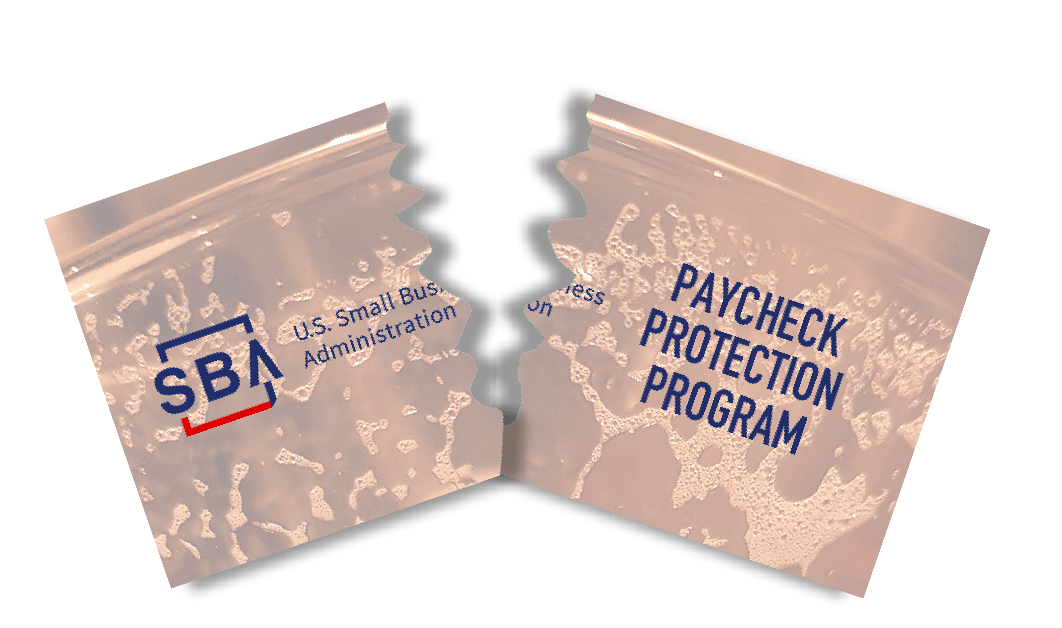By MATTHEW LUTTINGER & BRAN NOONAN of 
The CARES Act created the Paycheck Protection Program (“PPP”), which amended the Small Business Act (“SBA”) to provide short term loans to companies with fewer than 500 employees and other companies (such as those in the restaurant and hospitality industry). Such loans may be eligible for full forgiveness if used for payroll and other business expenses and all other statutory requirements are met.
The SBA continues to issue guidance on a rolling basis, which can impact a company’s eligibility for the loan, use of the loan, and the level of forgiveness. Below is among the updated guidance issued this week by the SBA:
- Rehiring. A borrower’s PPP loan forgiveness amount may not be reduced as a result of laying off an employee if the borrower laid off an employee, offered to rehire the same employee, but the employee declined the offer if: (a) the borrower made a good faith, written offer of rehire (for the same salary/wages and same number of hours); and (b) the employee’s rejection of that offer is documented by the borrower.
- Safe Harbor. SBA guidance and regulations previously provided a safe harbor for any borrower who applied for a PPP loan prior to April 24, 2020, and repays the loan by May 7, 2020, will be deemed by the SBA to have made the required certification on the Borrower Application Form in good faith that “[c]urrent economic uncertainty makes this loan request necessary to support the ongoing operations of the Applicant.” The May 7 safe harbor to repay the loan has been extended to May 14, 2020. This comes on the heels of the SBA clarifying that when making this certification, borrowers must take into account their current business activity and their ability to access other sources of liquidity sufficient to support their ongoing business operations in a manner that is not significantly detrimental to the business. The SBA intends to provide additional guidance on how it will review this certification prior to May 14, 2020. The SBA further mandated that to ensure PPP loans are limited to eligible borrowers in need, it will audit all PPP loans in excess of $2 million, in addition to other loans as appropriate, following the lender’s submission of the borrower’s loan forgiveness application.
- Student Employees. When determining the number of employees for PPP loan eligibility student workers generally count as employees, unless: (a) the application is an institution of higher education, as defined in the Department of Education’s Federal Work-Study regulations, 34 C.F.R § 675.2; and (b) the student worker’s services are performed as part of a Federal Work-Study Program (as defined in those regulations) or a substantially similar program of a State or political subdivision thereof. Institutions of higher education must exclude work study students when determining the number of employees for PPP loan eligibility, and must also exclude “payroll costs” for work study students from the calculation of “payroll costs” used to determine their PPP loan amount.
FordHarrison’s PPP team will continue to monitor the release of new guidance and provide such updates on a regular basis as guidance continues to roll out. The following attorneys are members of our PPP team:
- Bran Noonan, Partner / New York City, bnoonan@fordharrison.com
- Shane Muñoz, Partner / Tampa, smunoz@fordharrison.com
- Jack Schaedel, Partner / Los Angeles, jschaedel@fordharrison.com
- Becky Kalas, Counsel / Chicago, bkalas@fordharrison.com
- Ryan Stewart, Counsel /Tampa, rstewart@fordharrison.com
- Matt Luttinger, Associate / West Palm Beach, mluttinger@fordharrison.com
If you have any questions regarding this Alert, please contact the authors, Bran Noonan, bnoonan@fordharrison.com, and Matt Luttinger, mluttinger@fordharrison.com, any member of the PPP team or the FordHarrison attorney with whom you usually work.
FordHarrison is closely monitoring the spread of Coronavirus and associated federal and state legislation and has implemented continuity plans, including the ability to work remotely in a technologically secure environment when necessary, to ensure continuity of our operations and uninterrupted service to our clients. We are following all CDC guidelines and state and local laws as applicable. We are committed to ensuring the health and welfare of our clients, employees, and communities while continuing to provide our clients with the highest quality service. Please see our dedicated Coronavirus Taskforce and Coronavirus – CARES Act pages for the latest FH Legal Alerts and webinars on Coronavirus and workplace-related provisions of the CARES Act, as well as links to governmental and industry-specific resources for employers to obtain additional information and guidance. For more information or to be connected with a Coronavirus Taskforce or CARES Act attorney, please contact clientservice@fordharrison.com.



